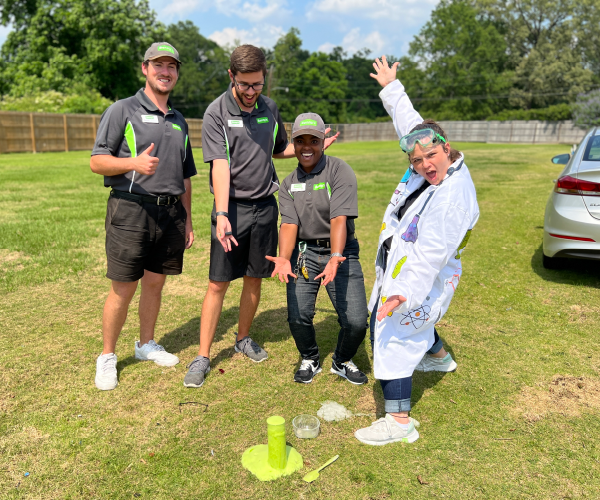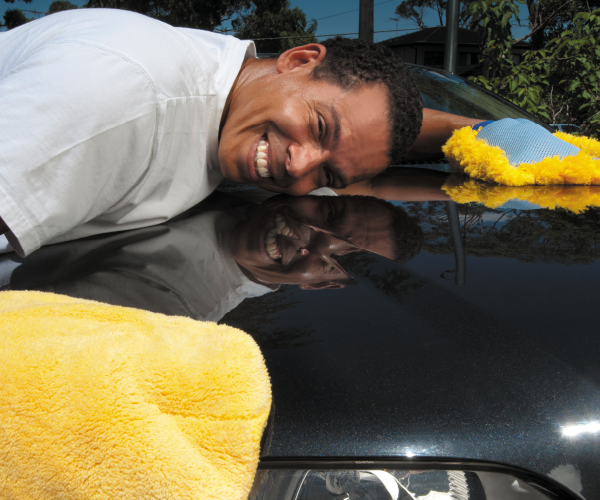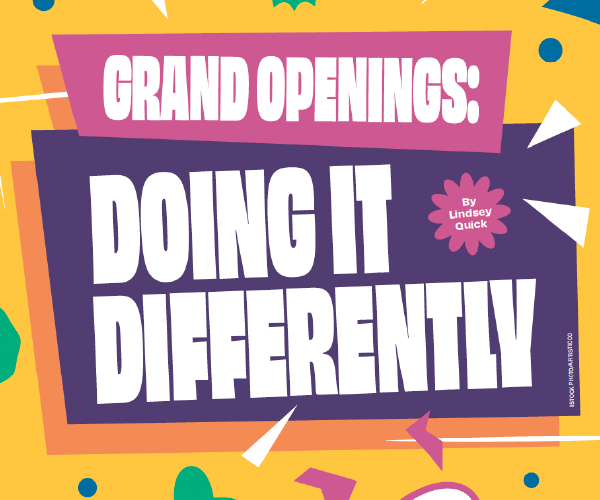
Becoming Bendable
February 22, 2022
6 minute ReadBY TOM GRESHAM
For car washes around the country, the arrival of the COVID-19 pandemic in 2020 was a shock. Operators had to adjust quickly to a new reality while providing increased attention to their employees, who were not only contending with changes in the way they worked but with daily worries about their health and job security.
Tyler Slaughter, Operations Director and Partner for Camel Express Car Wash in Nashville, Tenn. said it was important to react quickly to the circumstances to keep employees feeling safe and secure.
“The first few months were all over the place, and I felt like we had to support them mentally through a lot of it and make sure they weren’t panicking because that would have gone out through the organization,” Slaughter said.
In the face of rapid, unpredictable changes, car washes have had to prove their agility and flexibility not only with their business strategy, but with their employees — bending where they hadn’t bent before. In fact, car wash operations that changed practices in response to the pandemic are finding better ways of doing things they may never have discovered without the crisis providing a push toward change.
“The need to re-think these practices will be beneficial even when we return to a service experience that allows for more customer engagement,” said Julie Petty, Co-owner of H2WOW Car Wash in Colorado.
Adjusting processes
Petty said the biggest challenge to everyday business has been addressing public health regulations while maintaining a commitment to employees and to a high level of customer service. H2WOW Car Wash changed previously set-in-stone protocols as part of fortifying health and safety conditions for its employees. In particular, they implemented new cleaning and sanitizing procedures for customer-facing areas and office and break facilities and revamped their standard approach at the greeter station to reduce contact.
In addition, H2WOW reimagined its towel service at all of its locations as a “Towel Club.” Customers who join the club receive two towels that they can exchange at any time for fresh, sanitized towels. They had tried the model at one location to address towel theft but expanded the club to all locations during the pandemic. “This supported our goals of higher cleanliness standards for staff and customers, excellent customer service and cost management,” Petty said.
“We can assure that dirty towels do not get mixed with clean towels, we can more effectively manage our towel inventory so customers can rely on towel availability, and our team members can protect themselves by properly handling the used towels,” she said.
Slaughter said the biggest changes in worker protocols that Camel Express experienced were introducing social distancing to the workplace and gaining a deeper understanding of disinfecting surfaces around the wash.
“For about 14 days we had to close our vacs,” Slaughter said. “Now that was something different for sure.”
Petty said new steps toward improved cleanliness make sense for the long term, too.
“Keeping everyone as healthy as we can should be our goal all the time, even when we are facing typical seasonal germs,” she said.
Employee protocols
Car wash operators everywhere have faced a heightened need to balance compliance with compassion when engaging with their workers.
Many employees have needed to take time off because of health concerns or family challenges tied to the pandemic. Slaughter said Camel Express introduced new rules related to COVID-related sickness among its employees that were based on CDC and WHO advice.
“We didn’t question or discipline anyone if they weren’t comfortable working,” Slaughter said. “We actually supported a site manager [who] took almost two months off.”
Petty said H2WOW added the time-off policies covered by the CARES Act. Some employees have used those benefits either for their own sick time or to be at home with their school-age children.
Petty said demonstrating loyalty to team members has been critical during the pandemic by keeping them employed and working regular hours — and letting them know their work is valued.
“We show our loyalty to our team through continuity of pay even when revenue streams are uncertain, through increased communication, and through continuing, and even expanding, our training and recognition programs,” Petty said.
The pandemic prompted H2WOW to reevaluate career development for its employees.
“Our leadership team spent time defining the leadership traits we most value in our employees at all levels, and we also made major training investments in courses and tools to help our employees grow their skill sets,” Petty said. “We want our employees to feel confident that we’re here for the long haul. Investment in new programs shows our team that we are not frightened by change, because we work hard to be prepared to meet it.”
Slaughter said Camel Express has seen an increase in applications and interviews during the pandemic, helping the operation contend with any staffing challenges related to the health crisis. He believes that growth is attributed to the way Camel Express advertises its hiring efforts, its interview approach, and the culture the operation presents to those who are interviewing for positions.
“We’ve always been big believers in keeping our bench stocked so we always have the next person ready to go if one goes down due to sickness,” Slaughter said.
Managing through change
Managers, the primary connector of team and organizational goals, have picked up new responsibilities to weigh business needs and team needs, all in a more stressful environment. They’ve been responsible for successfully implementing new protocols so that they “stick” — and employees both understand them and follow them appropriately.
“Our biggest change when it comes to the managers is holding them accountable to check temps when the employees are clocking in, wearing face masks at all times and staying vigilant on our disaffecting policy,” Slaughter said.
Petty said H2WOW sought more robust manager training for its leaders to make sure they had the necessary tools to excel in uncertain situations.
“We are fortunate to have a dedicated and resilient team of employees, and our site managers have been incredible leaders throughout this uncertain time,” Petty said.
Petty said the keys to navigating the web of demands of managing a team of employees during a pandemic has included staying informed of changes, maintaining regular communication channels and showing resolute loyalty to the team, reassuring workers that this is just a passing challenge.
What has shown itself as being paramount is open, clear communication between employees and managers, Slaughter and Petty both said. Effective communication helps build trust between leadership and team members, and it also ensures that goals and requirements are fully understood throughout an organization. The risks of poor communication — such as a worker with symptoms or known exposure to COVID-19 reporting for duty — were clear. New, intensified communication practices were critical.
For Slaughter, the open-door communications policy between corporate and employees has been the most important component of managing the pandemic’s workplace risks. Camel Express worked to strengthen its communication processes and policies in response to the climate. “We were constantly communicating every single day and some time every hour,” he said.
“Our people started better communicating through our group messenger and letting us know if they were not feeling well prior to coming to the site and taking a chance in getting their co-workers sick,” Slaughter said.
Growing closer
In some cases, the challenges of the pandemic have strengthened employee-management relationships at car washes where organizations adjusted and came together to benefit both individual team members and the team as a whole.
“I have received really touching emails and cards from employees thanking us for our commitment to them especially during this crazy year,” Petty said. “Those messages are a welcome confirmation that we’re doing some things right.”
Similarly, Slaughter said he’s seen evidence that his company’s willingness to adapt for employees has resonated with them.
“The biggest tell to me is the fact that they know we’re here to keep them safe and as happy as possible — even during 20 policy changes a week,” Slaughter said.
Slaughter said Camel Express and car washing operators everywhere are fortunate to have weathered the pandemic as well as they have.
“I’m extremely proud of not only our team but the industry as a whole,” Slaughter said. “Car washing is a truly special industry.”








